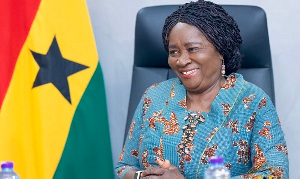The Universal Access to Health Care Campaign (UAHCC) and Primary Health Care Advocacy Coalition have urged government and other stakeholders to address issues in health care that affect women and girls.
The two bodies made the call in a manifesto presented to the Upper East Regional Minister as part of activities to commemorate the International Women's Day.
They went on a peaceful march in the Bolgatanga town and later to the Regional Coordinating Council with placards that indicated some issues affecting women.
Some of the placards that were displayed read “Increase NHIS premium for quality health care”, “Complete all uncompleted CHIPs compounds”, “Prioritize funding for preventive care”, “One district, one hospital and at least one medical doctor”.
Mr Isaac Nyampong, the Programme Officer of Alliance for Reproductive Health Rights (ARHR) who presented the communiqué on behalf of the group, to the Regional Minister through the Coordinating Director, expressed the hope that the document would receive the needed attention.
Part of the manifesto said “Despite five years since Ghana signed on to the Sustainable Development Goals (SDGs), gender inequality still exist in health service delivery, and women's rights are continuously being infringed on, as they include those living with disabilities and mental health issues lack access to quality health care".
The manifesto said the continual threats by Health Insurance Service Providers to withdraw their services due to late reimbursement of claims posed challenges to women in accessing quality health care.
The coalition called on government to ensure that revenue from the National Health Insurance Levy (NHIL) was separated from the consolidated fund, to enhance sustainability of the NHIS and reduce late reimbursement of claims to service providers.
It recommended that the Ministry of Health (MoH) strengthen its mental health facilities by increasing the number of mental health facilities across the country and ensure that psychiatric medications were procured and distributed equitably.
The manifesto asked government to complete all health infrastructural projects such as CHIP facilities that were started by previous administration.
Receiving the Manifesto, Alhaji M. A. Azonko, the Regional Coordinating Director, said government was concerned about women and was working towards implementing policies that would bring out the potentials of women into the forefront.
He said most of the challenges confronting access to quality health care bordered on poverty and inadequate skilled medical personnel.
The Coordinating Director assured the coalition that their concerns would be forwarded to the necessary stakeholders for further engagement.
Health News of Wednesday, 11 March 2020
Source: GNA













